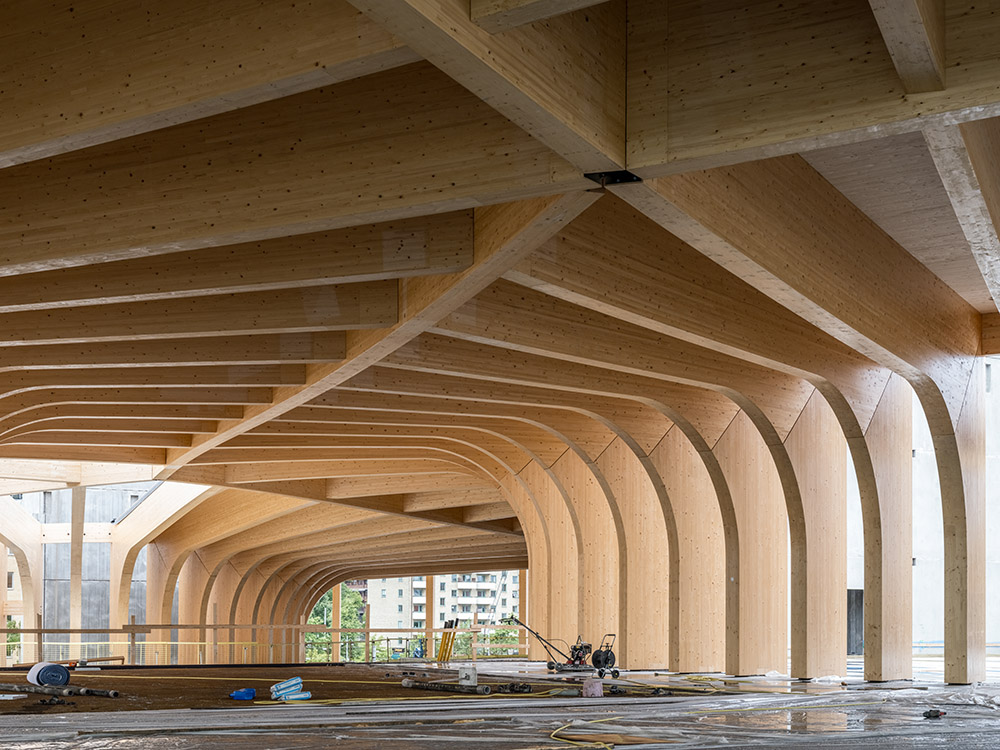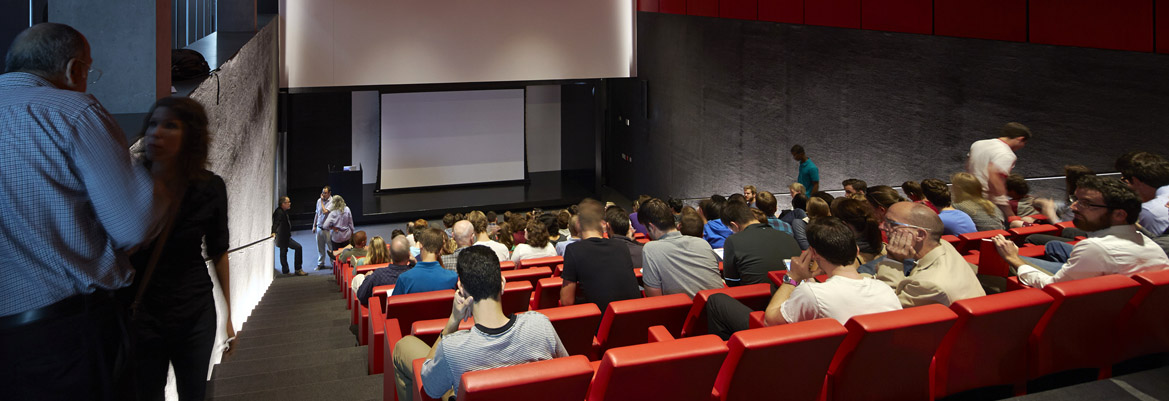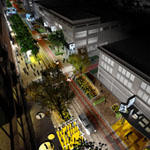
Construction site for the World of Volvo, in Gothenburg, Sweden. Photo by Rasmus Hjortshøj - COAST, courtesy of Henning Larsen.
Signe Kongebro is the global design director of urbanism and partner at Henning Larsen in Copenhagen, Denmark.
Kongebro will present a lecture at 4:30 p.m. Monday, Sept. 25, in Ken and Linda Sue Shollmier Hall, Room 250 of Vol Walker Hall, on the U of A campus, as part of the fall lecture series in the Fay Jones School of Architecture and Design.
In her lecture, “Urban Transformation: Pioneering Life-Centered Design,” Kongebro will discuss moving beyond human-centered design and toward life-centered design. She will explore how cities have been designed as if people own nature and the Earth’s resources are unlimited. She will also discuss how architects need to fundamentally change how they work, redefining their objectives and goals by designing for the welfare of all life. Kongebro says design must be elevated with higher-order complexity, working across many disciplines, deep data and knowledge spheres. Designers must ask big questions such as: What are the long-term implications of our decisions? What are the socio-economic impacts of our work? How can we minimize carbon on the urban scale? How can we bring nature and people closer together?
Through the lens of Henning Larsen projects and research initiatives, Kongebro will share ways of working with a life-centered approach on an urban scale, from integrating new mobility modes, decarbonizing urban spaces, and enhancing biodiversity to incorporating bio-based materials in the design of resilient urban environments that support the well-being of citizens and nature. She will also share insights into Henning Larsen’s working methods, where decarbonization and outstanding architecture go hand in hand to inspire future generations of clients, manufacturers, builders and architects to shape a more responsible building industry and culture.
In 2007, Kongebro founded Henning Larsen’s sustainability department, and to this day, she is one of the driving forces behind the practice’s growing focus on sustainable construction in the industry. With her extensive knowledge of environmentally friendly and resource-conscious design, Kongebro is pioneering new ways to reduce carbon on an urban scale.
Kongebro leads the design of a wide range of sustainably ambitious Henning Larsen projects. These include Fælledby, an all-timber neighborhood in Copenhagen designed to reduce the carbon impact of the development and increase biodiversity in a balance of city and nature; the Downsview Framework Plan set to be the largest transformational urban development project in Toronto, Canada; and Volvo Campus Lundby, an existing industrial campus reconfigured into a vibrant public hub for 16,000-plus staff, researchers and students in Gothenburg, Sweden.
One of Kongebro’s more recent projects, Urban Decarb, is a tool that integrates otherwise siloed carbon knowledge of urban components in the early design stages of urban development, ensuring that all stakeholders — from property owners and municipalities to designers, engineers, and even community members — are making informed decisions about the environmental impact of a project.
At the forefront of efforts to link innovation and new knowledge with architecture and urbanism, Kongebro is a frequent speaker and contributor to the global discourse on cities, decarbonization and eco-friendly design. In addition to holding positions on several boards and advisory boards, Kongebro is a founding partner of initiatives such as the REBUS Partnership and Sustainable Build.
This is the Dean’s Lecture in Nordic Architecture, as well as the Miller Boskus Lack Architects Endowed Lecture in Wood Design and Construction.
The school is pursuing continuing education credits for this lecture through the American Institute of Architects.
This lecture is free and open to the public. Seating is limited.



